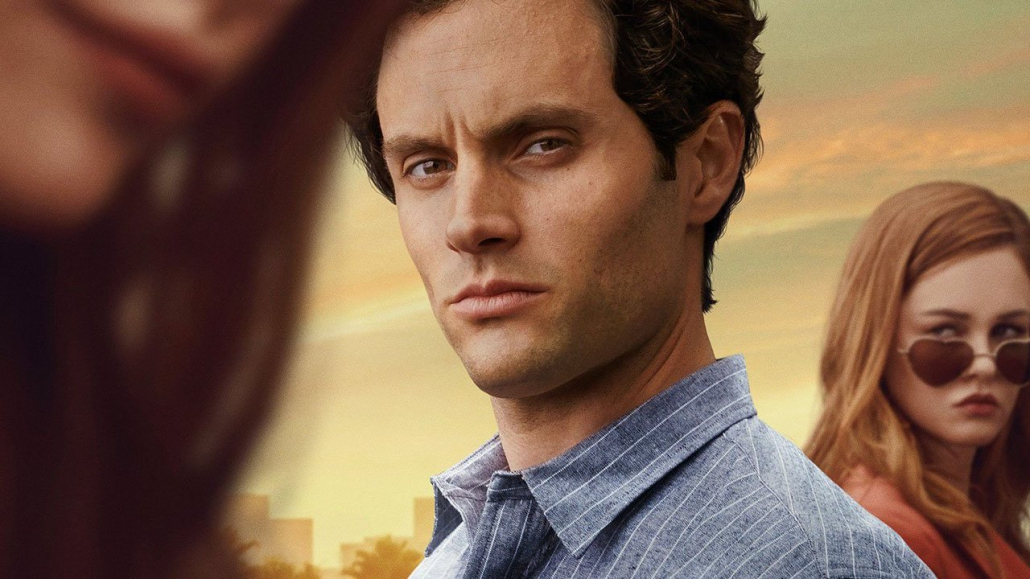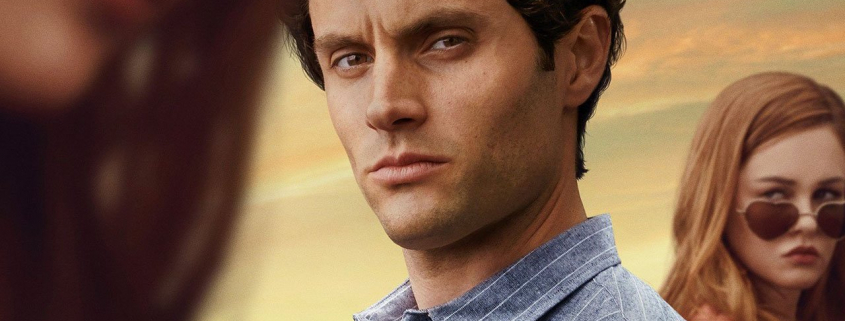Reel LA: Like the Los Angeles imaginary, ‘You’ obsesses over illusions

In the first episode of “You” Season Two, Joe Goldberg (Penn Badgley) moves to Los Angeles to escape from his past after murdering his prior love-interest Beck (Elizabeth Lail). To Goldberg, L.A. — with all its perceived insincerity and superficial focus on illusions and appearances — is a nightmare, particularly for someone who believes in his own genuine goodness above all else. At the very beginning of this episode, Goldberg walks past an Instagram-worthy wall, where a group of influencers are busy hosting livestreams and posing for social media photos.
“I’m here for the moment where everyone is too into themselves to connect with another person,” Goldberg says in a voiceover. “It’s the worst city in the world and the last place I wanna be, and that’s perfect.”
Those words stuck with me for a long time, mostly because of their irony. “You,” which tells the story of Goldberg and the lengths he goes to for his obsessions, is about the delusional, dangerous side of dreams. Even as he criticizes the shallowness of what appears as dominant L.A. culture, Goldberg is obsessed with crafting who he is within his own love story. When Goldberg falls in “love” again, this time with Love (Victoria Pedretti), he might not be an influencer curating a social media feed, but he curates his own identity to justify his pattern of killing and behavior. All of this is done to maintain his idealistic dream of romance.
In a twisted way, his pattern of behavior is his “influence.” That’s part of what makes “You” as a television show so subversive. The story, especially with Season Two’s L.A. setting, is willing to engage with ideas so crucial to romantic imagination. After distorting these images, it then asks: are these actions, are these people, really what they present themselves to be, or is this only a performance?
At the very end, when Goldberg discovers that Love isn’t who he thought she was, he attempts to kill her. It’s an immediate shun that others have written about for its important reflection of his narrative arc. He is so unwilling to see beyond the image that he doesn’t realize he has anyone other than himself to blame. Goldberg’s too into himself, too intent on preserving his vision and imagining his role in it. He never truly understands that illusions are only a slightly more romantic term for lies.
Watching “You,” I couldn’t help but think about the idea of illusions as driving forces. It’s in the digital presence that I focused on curating in high school. It’s in college, where I find myself still wanting to “perform” a certain way to others and to be seen as a “cool” person. It’s especially prevalent coming to USC, where I can’t help feeling inferior for not conforming to USC stereotypes, not looking the way I’d like to or not being extroverted enough.
These sentiments brought me to the backdrop for which this preoccupation with image and illusion all occurs: L.A. In many ways, that was the catalyst for this column. I wanted to write “Reel LA” because as a USC student, I’m interested in Los Angeles, specifically how this contemporary city is cinematically represented in the cultural imagination. As a student majoring in narrative studies and minoring in cinematic arts, I also know how important exposition is on a visual level.
“Reel LA” intends to analyze the L.A. imaginary in our own imaginations, but it’s also about discovering what’s real, or “reel.” I want to examine the city specifically in relation to the dichotomy of illusions and reality. I hope that we can use that framework to critically look at our own identities and experiences as USC students in L.A., and more importantly, just as human beings. In the process of watching how L.A. culture explicitly and implicitly parallels the decisions of fictional characters, I hope that we can think of ourselves as characters in our own stories.
That’s what I think is so powerful about film, television and visual culture as a whole — the self-referential awareness that you’re consuming the world around you, but only through a certain lens. At some point, you might watch a movie like “La La Land’’ about L.A. as a city of dreams. At the same time, you buy into those dreams while watching the characters that chase after them. You look for that idealized version of the city. You consume these personas knowing that they’re fiction, and yet you crave them. Sometimes you love them not in spite of, but because they represent an unattainable reality.
It’s a story that “You” tells, albeit through a psychological thriller that implicitly deals with themes of power and performance. The core of “You” is about Goldberg, who embodies the essence of L.A. even as he denies it. It’s about how Goldberg, like the culture around him, is obsessed with ideas of people. He’s obsessed with what they represent for him.
Consuming his fiction means that Goldberg can freely imagine the world around him on his own terms. It means performing an imagination where the only audience is yourself. I believe it’s a sentiment all too apt in the city of dreams — loving images for the “realities” they represent, and not the myths that they are.
Valerie Wu is a junior writing about film, television and visual culture in relation to Los Angeles. Her column, “Reel LA,” runs every other Monday.
Editor’s Note: This article was updated to include the title of Wu’s column.

